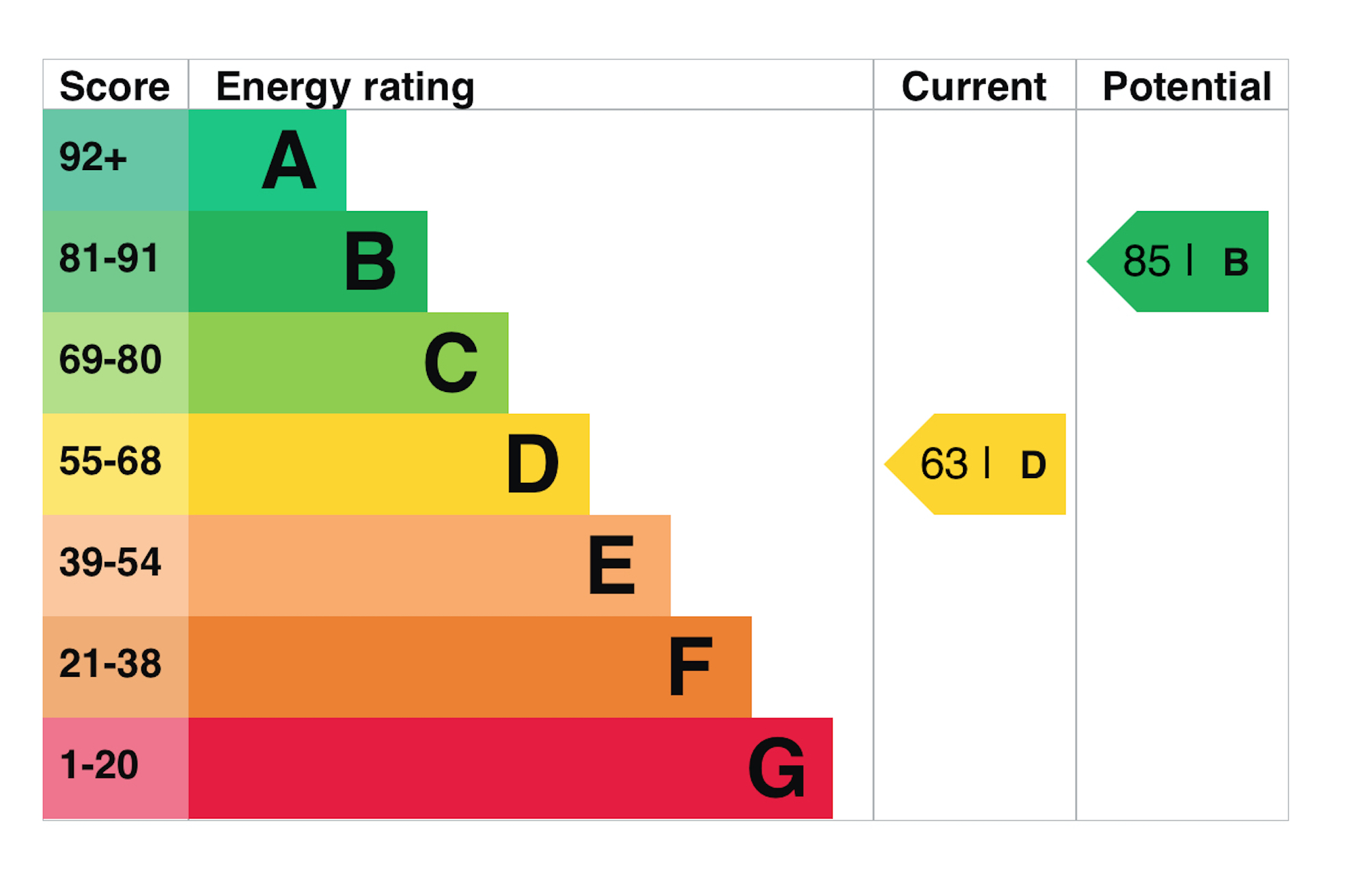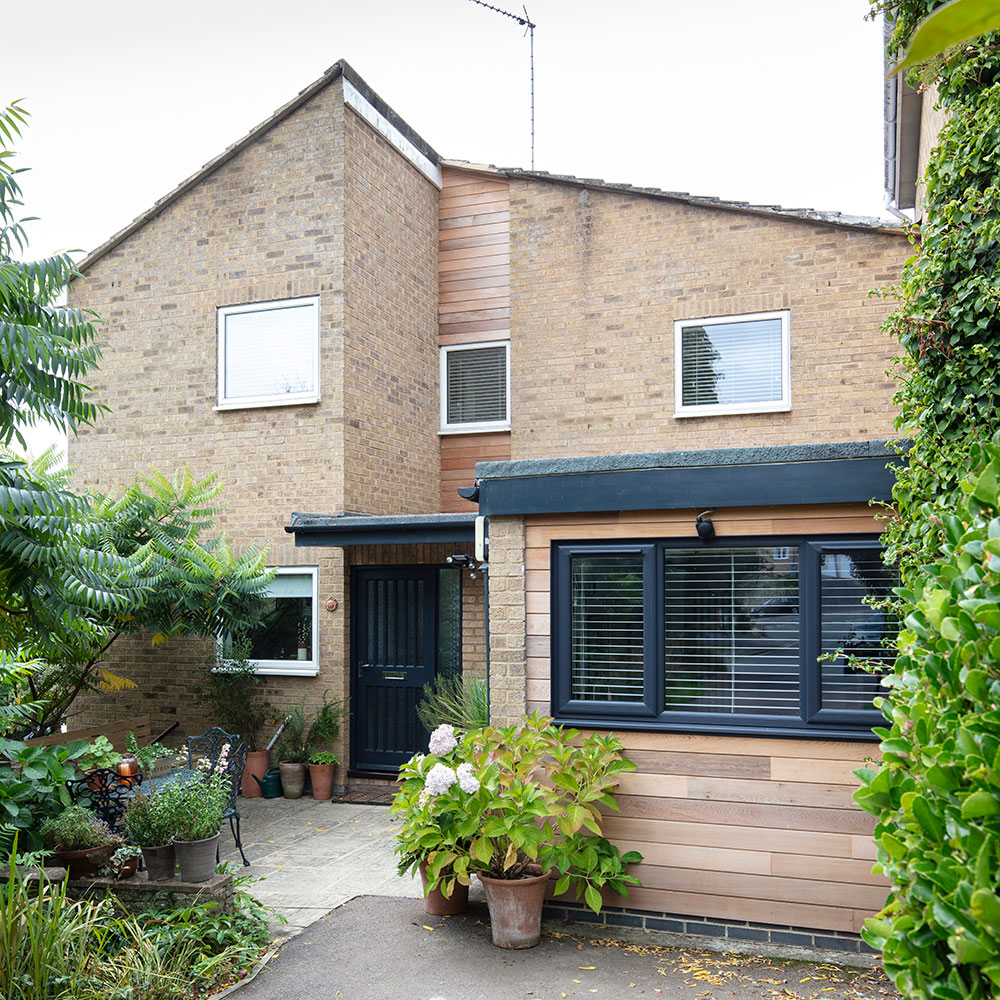What is an EPC D rating and how do I improve it?
Find out more about your home’s EPC D rating and how you can improve energy efficiency

Does your home have an EPC D rating? An Energy Performance Certificate (EPC) is a measure of your property’s energy efficiency. If you are selling or renting out a property you are legally obliged to have this document to show prospective buyers or tenants how expensive the property will be to run.
EPC ratings also include recommendations for improving efficiency. For each measure, it will tell you how much it will cost to install and the potential savings that you could make.
A quick visual guide shows you how efficient your property is, with bands from A to G. The most efficient homes, which use the least amount of fuel are in band A and the least efficient are in band G. The average rating for a property in England and Wales is in band D.
What is an EPC D rating?
Every EPC rating corresponds to scores reflecting the government’s Standard Assessment Procedure (SAP) and goes from 1 to 100 plus SAP points. An EPC D Rating is equivalent of between 55 and 68 SAP points. In March 2021, the median energy efficiency score was 66 in England and 64 in Wales, the equivalent of Band D.

If you are buying a new home, an EPC certificate could help you compare properties you may be looking at. If you are a seller, improving your rating could help boost the value of your property. Research from moneysupermarket.com shows the average home could be worth as much as 14 per cent more if it was upgraded to an A rating.
‘An EPC indicates how much it will cost to heat and power a property, which is vital to know given the rising cost of energy,' says Phil Foster, CEO at Love Energy Savings. 'An EPC with a high rating adds value to your property and will encourage buyers, so if you're looking to sell your home it's a good idea to evaluate whether anything can be done to improve your EPC.’
Why does my home have an EPC D rating?
Your EPC will cover current and potential energy saving costs, looking at heating hot water, and lighting. It will then give you a breakdown of each element of your property with a description and energy rating. This will help you to understand the effectiveness of the construction of your building, your heating and hot water system, and your lighting.
The EPC will detail how much heat you are expected to use in the property, as well as how you can reduce that by improving the insulation.
‘Every property is different,' explains Tim Kampel, Director at Box Property Solutions. 'A typical D property would look like a late 1970s semi that is not very well insulated. It's likely to have a dated boiler, and not great double glazing.’

Is an EPC D rating bad?
This is the average score in the UK but the government has set a major target for all UK homes to have no lower than an EPC rating of C by 2035. For landlords, the Minimum Energy Standards (MEES) rating could also be set to rise from 2025 to C as the government pushes ahead with their ambitious targets to achieve net-zero by 2050.
'The average for a home in the UK is currently an EPC rating D, but the government hopes to raise this to a EPC C rating by 2025/26 and it will be essential for landlords to achieve this rating, or they could risk being fined,' adds Adam Male, Chief Revenue Officer at online lettings agent Mashroom.
‘Whilst a D rating is generally acceptable, there is room for improvement to increase the energy efficiency of your property. Look into areas that will make the biggest impact on energy savings, such as investing in double glazing and ensuring that your home is fully insulated.’
Having a more energy-efficient home will equal a higher property value and you will save money on your fuel bills. According to the Department for Business, Energy & Industrial Strategy (BEIS), the average energy costs for a home with an EPC C rating are around £300 cheaper than a band D property.

How can I improve my D EPC rating?
There are various ways you can improve your EPC rating. Given the current climate, now is an excellent time to start thinking about ways you could make your property more efficient.
‘The first point of call for any property is to conduct an audit of what you need to do to your property based on when it was built, what eco features and EPC rating it currently has. Also whether your listed building needs an EPC rating,' explains Michael Cook, Group Managing Director at property experts Leaders Romans Group. 'There are key differentiators within the EPC rating system that can help you start on the improvement process.’
Common recommendations include:
1. Improve your insulation
Installing insulation in wall cavities and lofts could help you save energy and improve your EPC rating considerably. Recommendations suggest that insulation should be 270mm thick and this could lead to a difference between 15 to 20 points on your EPC.
2. Upgrade your boiler
Installing a new more energy-efficient boiler can reduce the energy consumption of your property. Other recommendations may include considering renewable energy technology, such as solar panels or heat pumps to power that boiler.
3. Use energy-efficient light bulbs
LED bulbs are more expensive to buy than standard bulbs but use 90 per cent less energy than normal lightbulbs. This change could improve your energy efficiency with minimal effort.

4. Invest in new glazing
If you have single glazed windows or old double glazing, the latest generation of glazing will help to insulate your property and banish draughts.
5. Install a smart meter
Smart meters are a great way of seeing how much energy you are using and so you can make changes that can impact how efficient your energy usage is.
A report from the Energy Saving Trust found that 85 per cent of people with smart meters in their properties changed their habits to save energy.
Get the Ideal Home Newsletter
Sign up to our newsletter for style and decor inspiration, house makeovers, project advice and more.
Georgina is an experienced copywriter, editor, and NCTJ-accredited journalist with almost 20 years' writing experience. She currently works across multiple sectors, including energy, health, lifestyle, entertainment, tech, and education. Recently, she compiled articles for an energy trade magazine about renewables and offshore wind farms and she has a number of boiler clients through her copywriting work.
-
 I spent the afternoon looking through Wayfair's garden sale – these are the 6 pieces I'm buying immediately for summer
I spent the afternoon looking through Wayfair's garden sale – these are the 6 pieces I'm buying immediately for summerThese are my must-have garden buys from the sale
By Holly Reaney
-
 Stripes have got a bold new look – here’s how to make the trend work in your home, according to interior experts
Stripes have got a bold new look – here’s how to make the trend work in your home, according to interior expertsAdd a pop of personality to the classic pattern
By Maddie Balcombe
-
 What to do if you've sown the wrong grass seed – experts reveal exactly how to fix it and get your dream lawn back on track
What to do if you've sown the wrong grass seed – experts reveal exactly how to fix it and get your dream lawn back on trackDon't panic! Follow this easy guide to putting it right
By Natalie Osborn